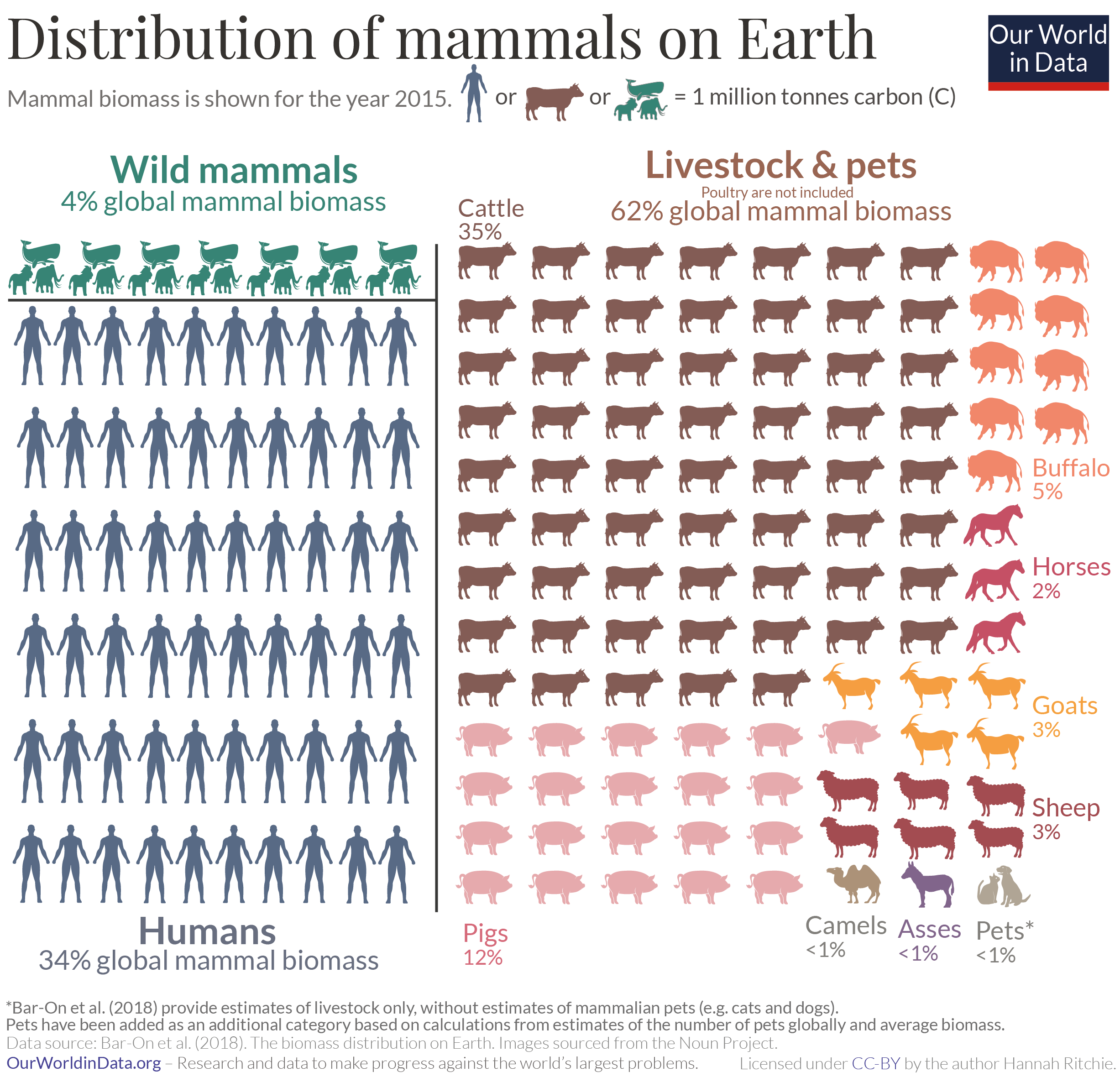Biodiversity loss
If we don’t take action, the collapse of our civilizations and the extinction of much of the natural world is on the horizon.Sir David Attenborough
The ecosystems in our world are intricately complex. For thousands of years, the planet has been a balancing act where species live sustainably within their environments. Humans, with our ability to construct livable space in nearly any environment, have broken that balance. We cleared and plowed the flora of forests and plains into agricultural fields. We domesticated animals once recognized as co-inhabitants of this balance into nothing more than inputs in factory farming. And we're still pushing further, not only destroying individual ecosystems but each loss unleashes further consequences.
Our agriculture practices cover about 40% of all land on Earth, account for 15-30% of global energy use, and are responsible for 25-35% of annual greenhouse gas emissions. Growing demand for cropland is a significant contributor to ongoing deforestation, exacerbated by the current food crisis. Our activities on Earth have caused a two-thirds drop in wildlife populations over the last 50 years.
This drastic reduction in animal and plant species should be a wake-up call to everyone. Pollinating insects are vital for ecosystem health and our ability to produce food. Soil health is maintained by burrowing insects, animals, and microorganisms die out. Much of the natural world purifies and protects groundwater sources. Vital ecosystems are threatened by human activity such as deforestation, pesticides use, and urbanization; most this impact stems from excess consumption practices. For decades climate change has been predicted to push 15-35% of plant and animal species to extinction, but more recent studies show that is a significant underestimate. Without a rich diversity of wildlife, our planet is losing its ability to adapt to change, and we exchange natural balance for an unlivable world.
Protecting biodiversity amounts to protecting humanityUNESCO Director-General Audrey Azoulay

Wild mammal biomass, the total weight of all wild mammals, has been reduced by an estimated 85% through overhunting and habitat loss. Now the world's mammal biomass is mostly our livestock (62%) and us humans (34%), leaving only 4% for what's left of the wild mammals. Elephants to massive herds of wildebeest, bears to bison, and all of the rodents now make up only 4%. We have spent the last 10,000 years destroying our planet's ecosystems to feed and house our exploding population.
Estimates show the mass of human-made materials exceeds the combined mass of living biomass. We have refined and manufactured enough materials, the vast majority for buildings and infrastructure, to balance the weight of all living things. Unlike the natural world, our output has been doubling every 20 years — in 2040 the total weight of human production will be twice that of the living world. We cannot continue ignoring the impact that resource extraction, refinement, and construction have on our planet and its ability to sustain life. Concrete alone contributes about 8% of worldwide CO2 emissions, and our concrete & glass consumption is pushing us toward a sand crisis.
We must start living sustainably within the ecosystems around us. To recognize and appreciate our place within the natural world.
Through 'transformative change', nature can still be conserved, restored and used sustainably — this is also key to meeting most other global goals. By transformative change, we mean a fundamental, system-wide reorganization across technological, economic and social factors, including paradigms, goals and values.Intergovernmental Science-Policy Platform on Biodiversity and Ecosystem Services Chair, Sir Robert Watson
